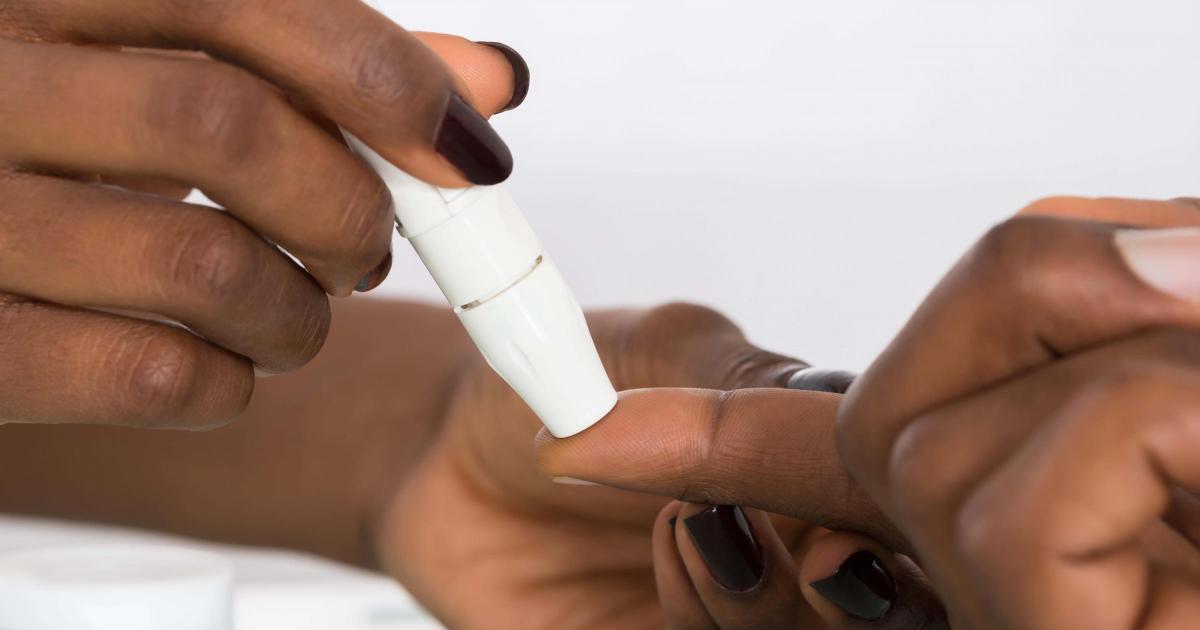Experts said the findings are “deeply concerning” and warned that routine diabetes tests may not be accurate for those with the condition.
The study by the University of Exeter and Queen Mary University of London (QMUL) analysed data from 510,379 people.
Researchers estimate that around one in seven black men and one in 63 South Asian men have a generic condition known as G6PD deficiency, compared with fewer than one in 100,000 white men.
“Despite this, less than one in 50 G6PD-deficient men are clinically recognised,” academics said.
G6PD is a protein found in red blood cells, which carry oxygen around the body.
These cells typically live for around three months before being destroyed, and G6PD helps protect them against certain substances to prevent them from dying too early.
The red blood cells in people with this deficiency do not have enough of the G6PD protein, and if they are exposed to certain chemicals in some foods or drugs, the cells are destroyed too soon, causing anaemia and other problems.
While the deficiency does not cause diabetes, it can impact on blood test results.
Diabetes is typically diagnosed and monitored using an HbA1c, which measures average blood sugar levels over the previous two to three months by checking the amount of glucose attached to the haemoglobin in red blood cells.
According to researchers, G6PD deficiency can make HbA1c appear artificially low, underestimating true blood sugar levels.
The team also found that men with G6PD deficiency have a 37% higher risk of developed serious complications associated with type 2 diabetes, including eye, kidney and nerve damage.
Professor Ines Barroso, of the University of Exeter, said: “Our findings highlight the urgent need for changes to testing practices to tackle health inequalities.
“Doctors and health policy makers need to be aware that the HbA1c test may not be accurate for people with G6PD deficiency and routine G6PD screening could help identify those at risk. Addressing this issue is not only crucial for medicine, but for health equity.”
It is estimated that more than 400 million people worldwide have G6PD deficiency.
The findings, published in the journal Diabetes Care, have been described as “deeply concerning”.
Dr Veline L’Esperance, a GP and senior clinical research fellow at QMUL, said: “These findings are deeply concerning because they show how a widely used diagnostic tool may be failing communities that are already disproportionately affected by type 2 diabetes.
“Too many people are being left undiagnosed until it is too late to prevent serious complications.
“We need greater awareness among healthcare professionals and stronger policies to ensure equitable screening and diagnosis.
In the UK, around 5.8 million people are living with diabetes.
This includes 4.6 million people with a diagnosis and 1.8 million people without a diagnosis.
According to Diabetes UK, black and South Asian people in the UK are twice as likely to be living with undiagnosed type 2 diabetes than white people and face worse health outcomes once diagnosed.
Anna Morris, the charity’s assistant director of research and co-lead for tackling inequities, said: “These disparities are unacceptable and must be addressed to ensure equitable diabetes care for all.
“If our most common test to diagnose and monitor type 2 diabetes isn’t accurate for people of all ethnicities, it could seriously compound these problems and leave people without the care they deserve.
“Without the reliable tools they need, healthcare professionals risk missing or misdiagnosing type 2 diabetes.”
Dr Esther Mukuka, director of research inclusion at the NIHR, which supported the study, added: “Addressing the impact of G6PD deficiency on diabetes testing is an important step towards reducing inequalities and making sure that everyone, regardless of background, benefits equally from medical advances.”
